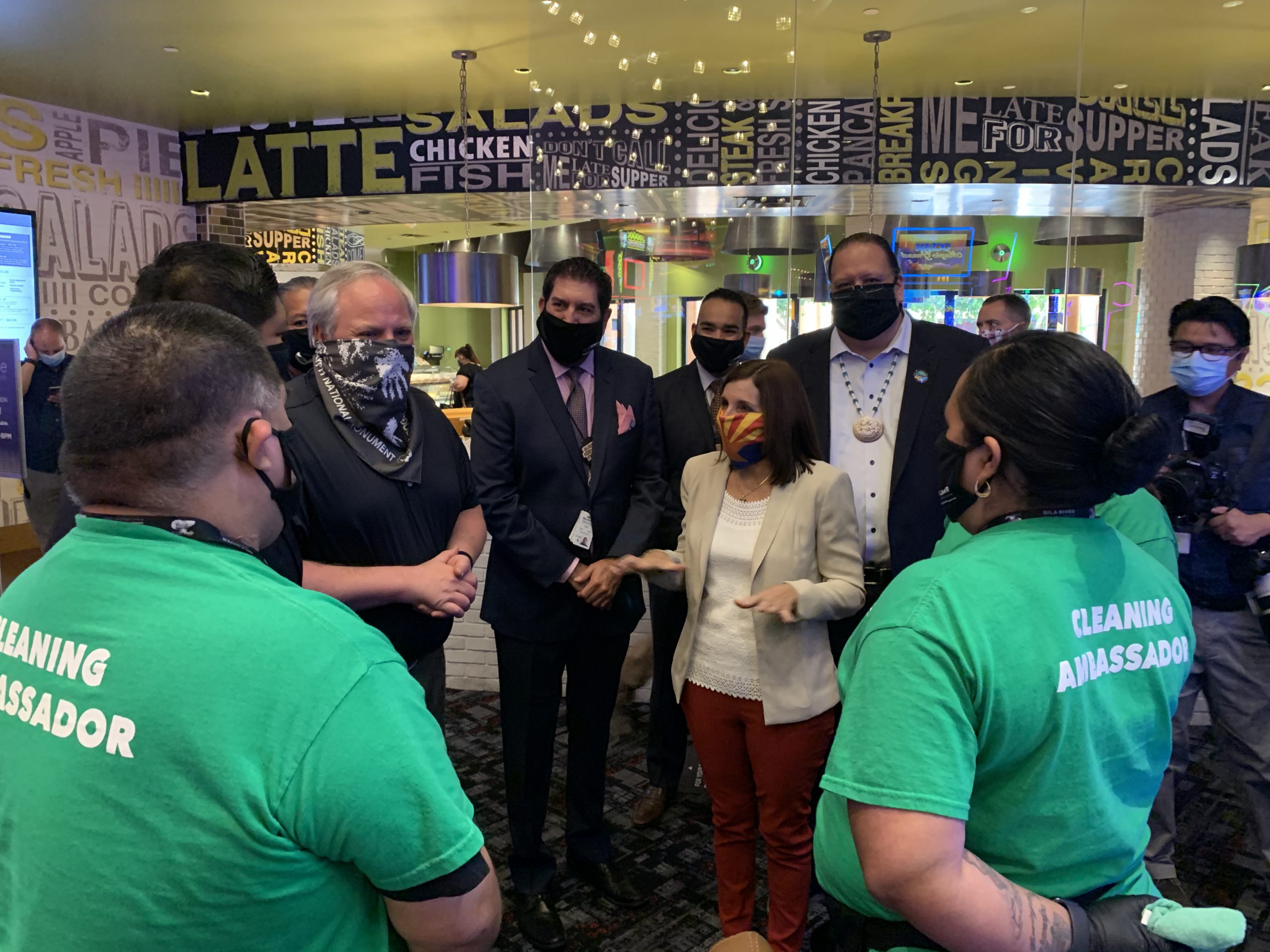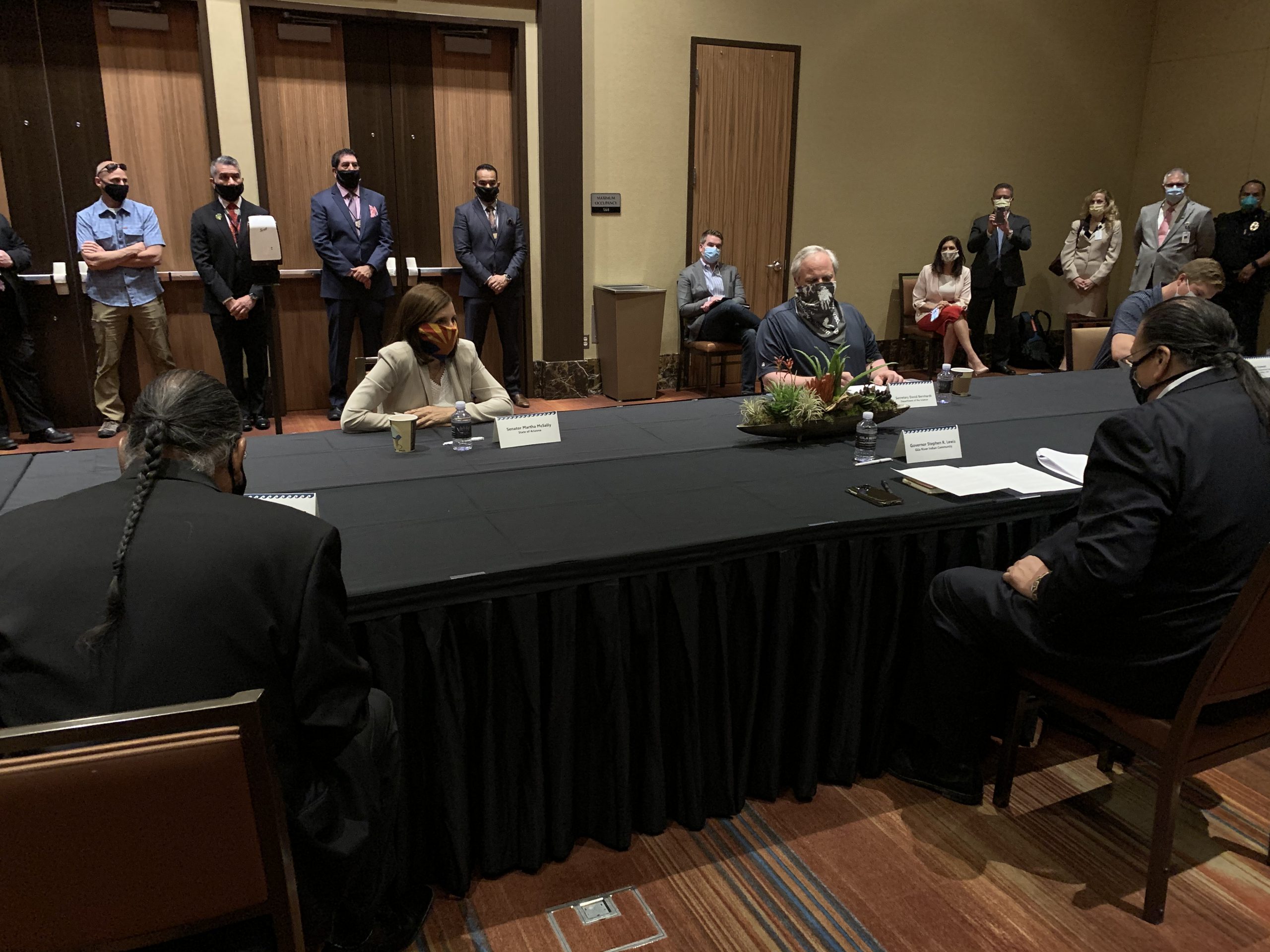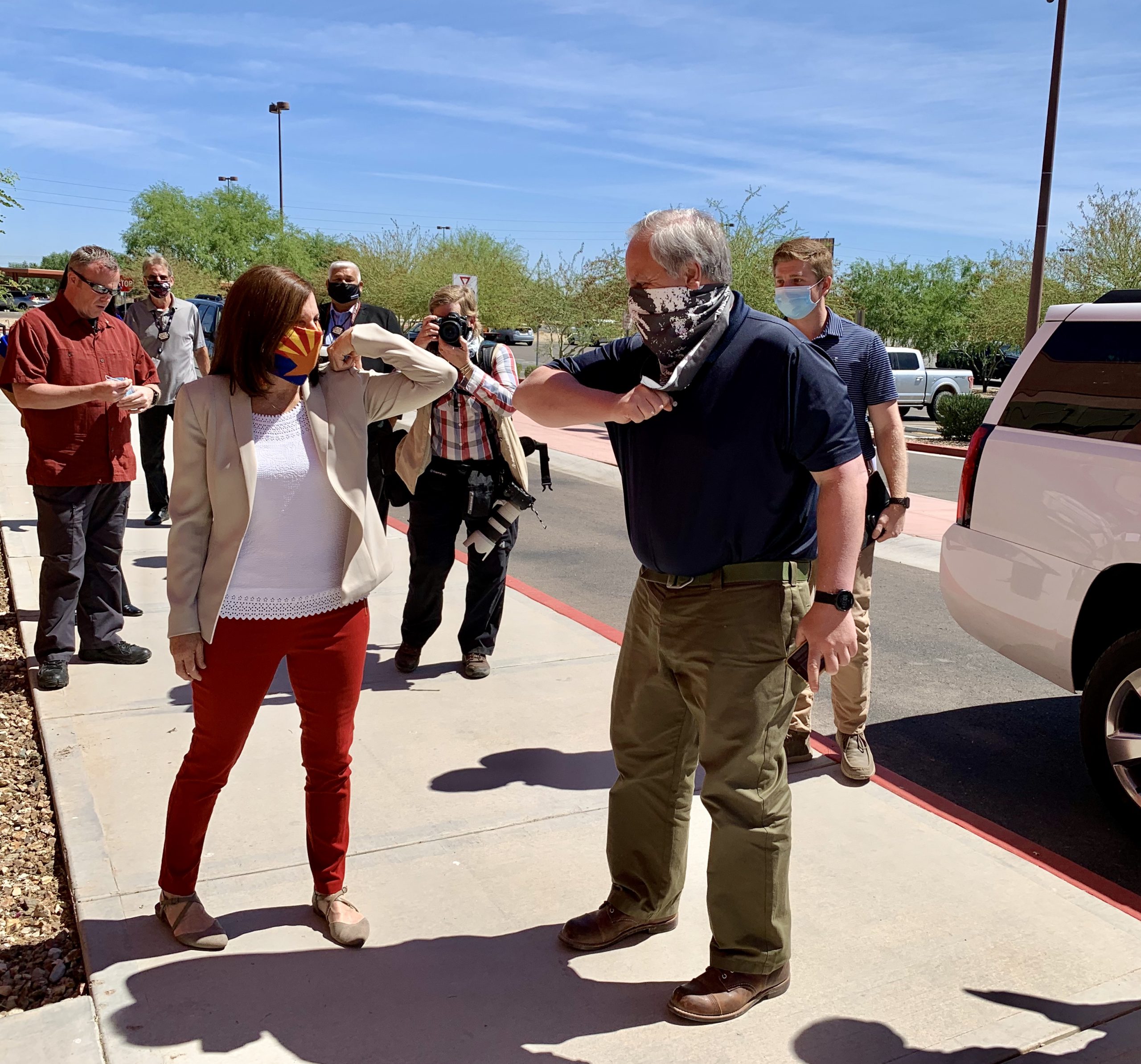
Touring Lone Butte Casino on the Gila River Indian Community in Arizona on May 22, 2020. Photo courtesy Sen. Martha McSally (R-Arizona)
FOR IMMEDIATE RELEASE
May 22, 2020
McSally Visits Gila River Indian Community with Interior Secretary
PHOENIX, Ariz. – U.S. Senator Martha McSally (R-AZ) and Interior Secretary David Bernhardt met with Gila River Indian Community (GRIC) leadership today and viewed their plans to safely reopen the Community.
McSally and Bernhardt toured the Community’s COVID-19 testing site, funded by the CARES Act, which tests essential tribal government and enterprise employees. GRIC prioritized COVID-19 testing at the beginning of the pandemic.

In early April, McSally helped connect GRIC with the Mayo Clinic to ramp up test processing. The partnership led to an agreement that Mayo Clinic would process up to 500 tests per week for the Community’s most vulnerable population. So far, the tribe has performed over 5,500 tests.
The pair also viewed newly implemented safety measures at Lone Butte Casino, which began a partial reopening on May 15. Safety measures include regular testing of employees using the CARES Act funding, plexiglass barriers, and a Green Team of employees dedicated to constantly sanitizing the casino.

“It was an honor to welcome Secretary Bernhardt to Arizona and visit Gila River Indian Community with him,” McSally said. “We saw firsthand the Community’s dedication to public safety as they gradually reopen their economy. With the aid of the CARES Act, the Community has prioritized COVID-19 testing and become a nationwide model. After helping connect them with Mayo Clinic to ramp up test processing in April, it was great to tour their testing site. We also viewed the many safety measures put in place at the Lone Butte Casino, including plexiglass barriers and the Green Team, dedicated to constantly sanitizing the venue. The partial reopening of their gaming enterprises is great news for our economy and their many native and non-native employees.”

Background:
- On May 12, Sen. McSally met with President Trump to advocate for greater flexibility in CARES Act funding for states, cities, and tribes.
- On May 8, Sen. McSally introduced bipartisan legislation to boost health resources for urban Indian health organizations as the coronavirus pandemic forces many to grapple with financial hardship and even close operations.
- On May 5, Sen. McSally met with President Trump, Governor Ducey, GRIC Governor Lewis, and Navajo Nation Vice President Myron Lizer to discuss tribal COVID-19 response efforts.
- On May 5, Sen. McSally released a statement following the Treasury Department and Interior Department’s announcement that they would begin disbursing $4.8 billion in coronavirus relief funds to tribal nations across the U.S.
- On April 24, Sen. McSally secured inclusion of tribal gaming enterprises in the Paycheck Protection Program.
- On April 20, Sen. McSally spoke over-the-phone with SBA Administrator Jovita Carranza advocating for the inclusion of small tribal gaming enterprises in PPP.
- On April 18, Sen. McSally spoke over-the-phone with Treasury Deputy Secretary Justin Muzinich advocating for the inclusion of small tribal gaming enterprises in PPP.
- On April 7, Sen. McSally sent a letter to the SBA and the Treasury urging them to issue updated guidance that would allow small tribal gaming enterprises under 500 employees to apply for assistance through the PPP.
- On April 1, Sen. McSally sent a letter urging the Administration to expedite federal resources for tribal communities.
- On March 26, Sen. McSally secured billions in financial relief for tribes amid the coronavirus pandemic.
- On March 20, Sens. McSally and Daines sent a letter to Senate leadership insisting that tribal-specific relief provisions be included in this legislation.
- On March 19, Sen. McSally held a conference call with Arizona tribal leaders to hear directly from them what their most critical needs were.
HHS Small Ambulatory Program Awards $55 Million to 15 Tribes and Tribal Organizations (Indian Health Service)
Indian Health Service Announces New Deputy Director for Quality Health Care and Enterprise Risk Management (Indian Health Service)
Federal Emergency Management Agency (FEMA)
White House Office of Management and Budget (Joe Biden Administration)
Tuba City Regional Health Care Corporation (Arizona, Navajo Nation)
Oklahoma City Indian Clinic (OKCIC)
Indian Health Service (Department of Health and Human Services)
Navajo Nation Town Hall (Arizona, New Mexico, Utah)
Navajo Nation (Arizona, New Mexico, Utah)
Tribal organizations statement on advance appropriations for Indian Health Service
Indian Health Service Statement on Advance Appropriations (Department of Health and Human Services)
Indian Health Service (Department of Health and Human Services)
Indian Health Service (Department of Health and Human Services)
Navajo Nation (Arizona, New Mexico, Utah)
